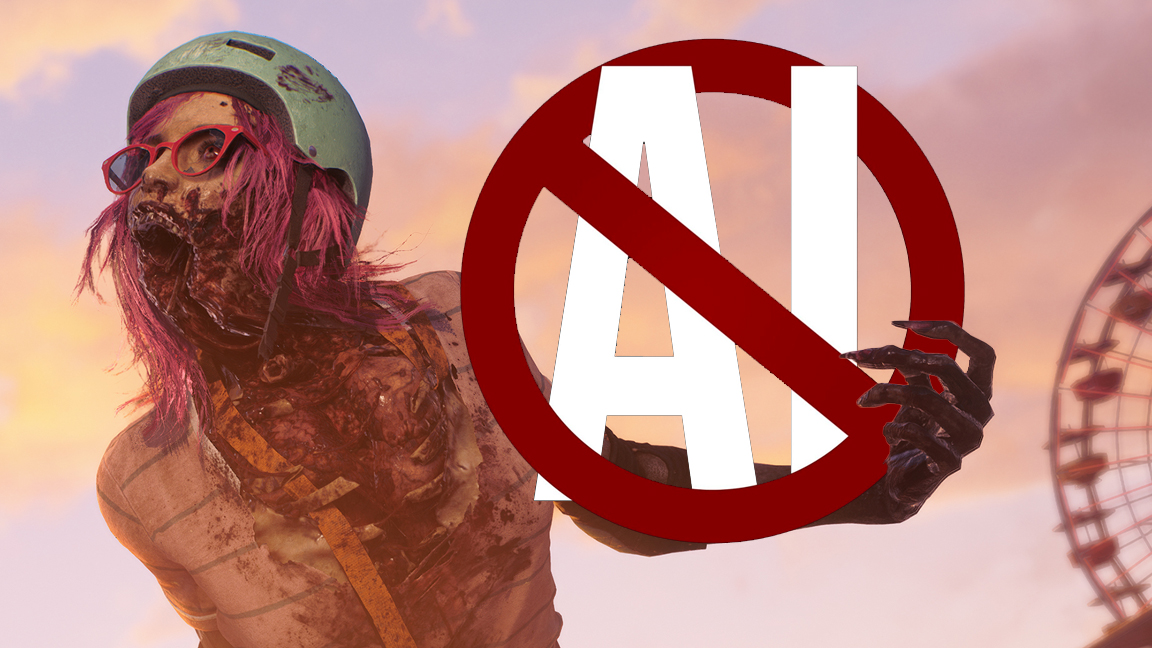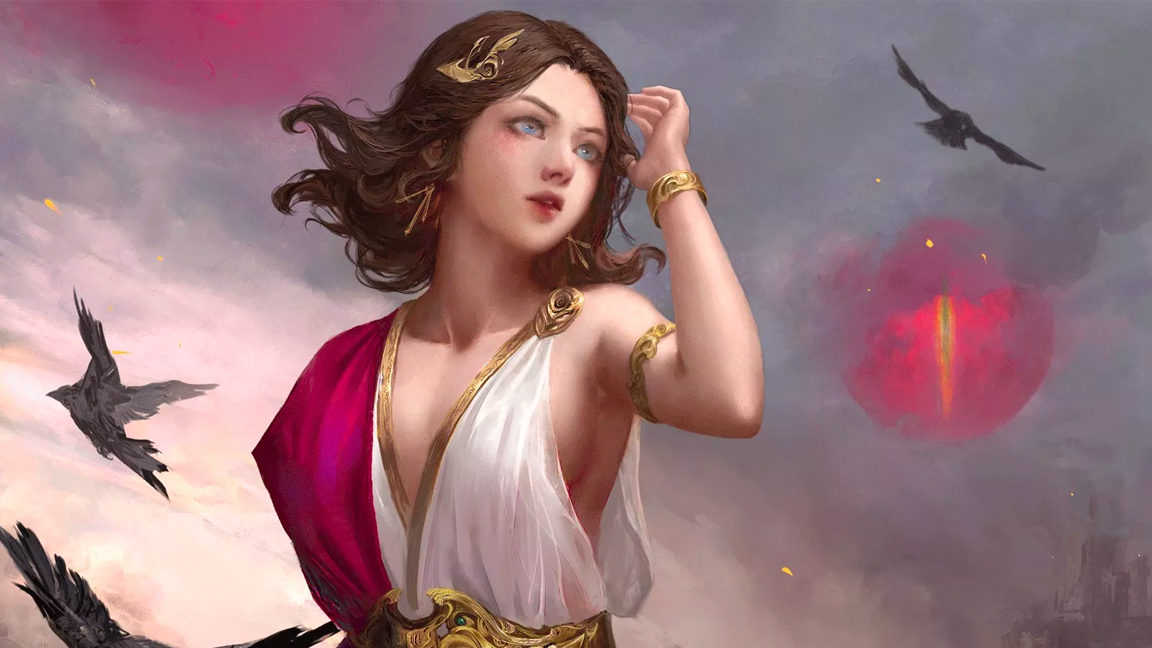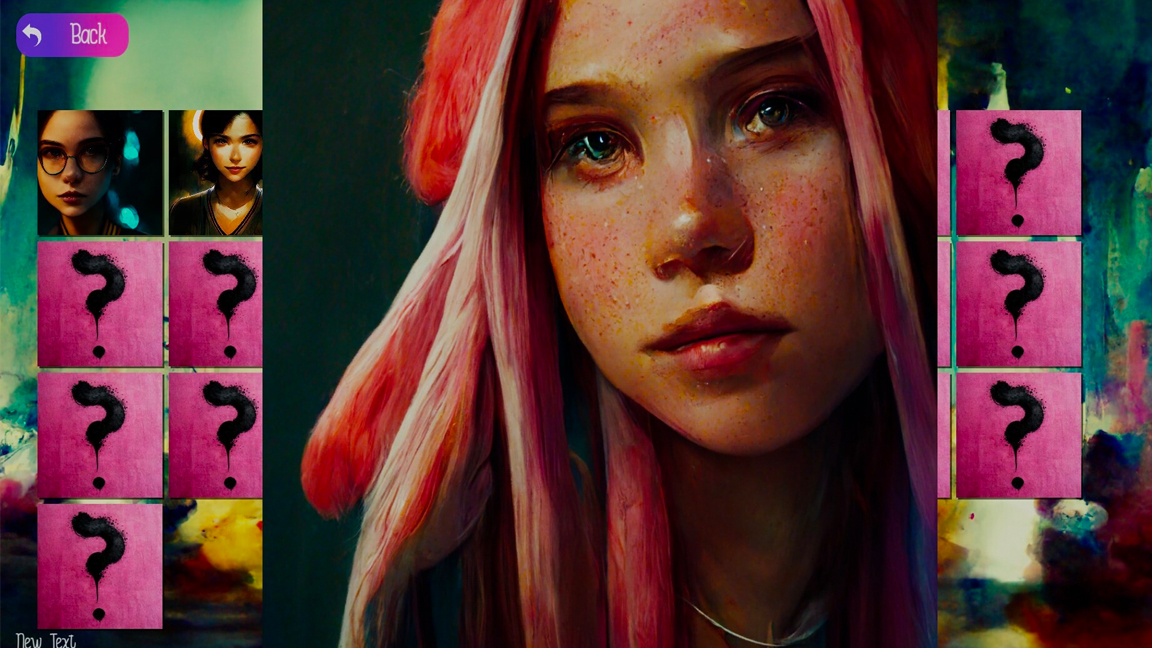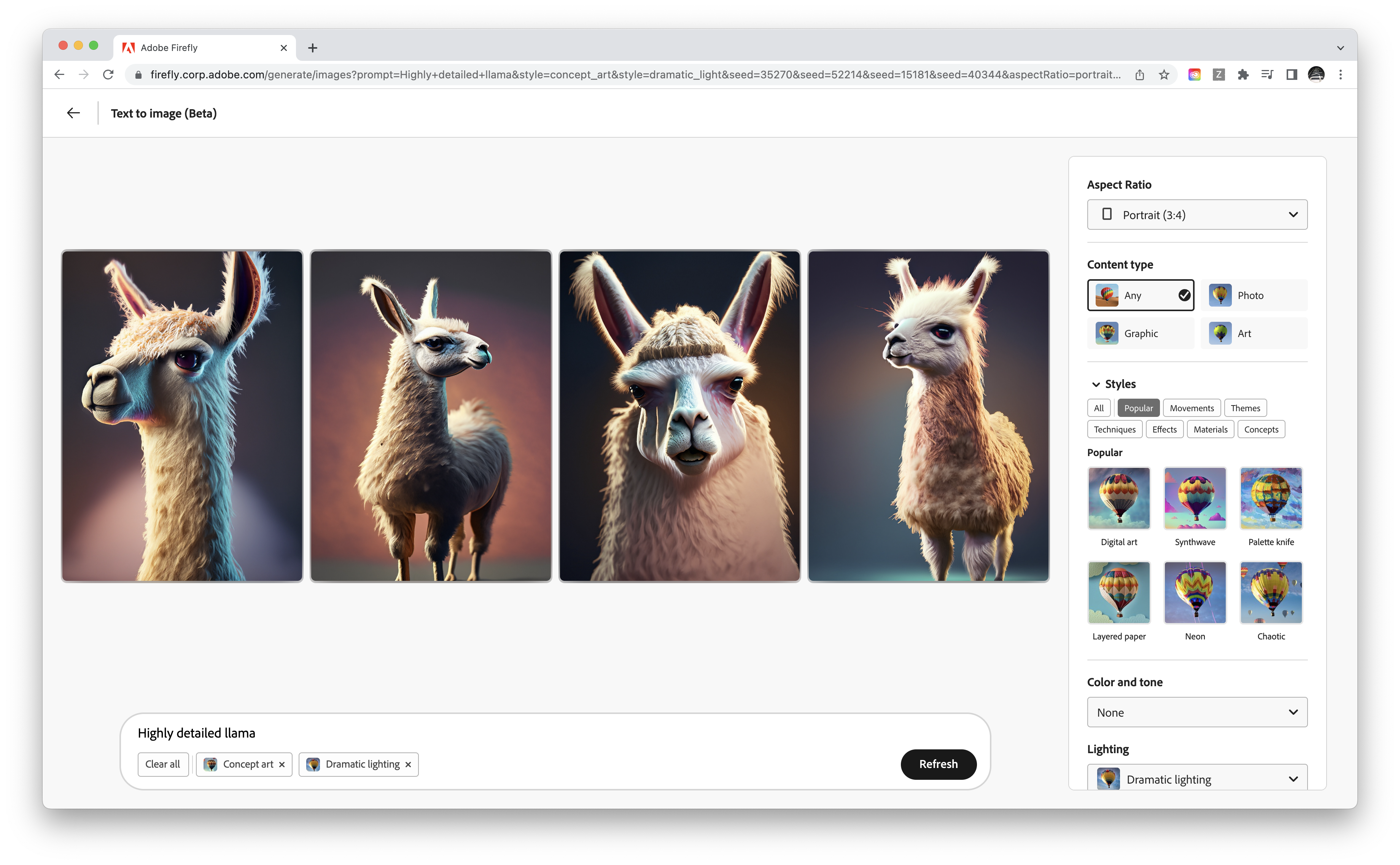
Sign up to Creative Bloq's daily newsletter, which brings you the latest news and inspiration from the worlds of art, design and technology.
You are now subscribed
Your newsletter sign-up was successful
Want to add more newsletters?

Five times a week
CreativeBloq
Sign up to Creative Bloq's daily newsletter, which brings you the latest news and inspiration from the worlds of art, design and technology.

Once a week
By Design
Sign up to Creative Bloq's daily newsletter, which brings you the latest news and inspiration from the worlds of art, design and technology.

Once a week
State of the Art
Sign up to Creative Bloq's daily newsletter, which brings you the latest news and inspiration from the worlds of art, design and technology.

Seasonal (around events)
Brand Impact Awards
Sign up to Creative Bloq's daily newsletter, which brings you the latest news and inspiration from the worlds of art, design and technology.
Every day it feels like a new AI art app or use is being touted as the future of art and design with the promise of speeding up workflows. But a new line is being drawn in the fight against AI art, and it's coming from the video game industry.
According to video game director and freelance artist Trent Kaniuga, who counts Blizzard, Riot Games, Capcom and Epic Games as his clients, many video game companies are now contractually demanding artists don't use AI in their work.
It's common for artists in the video games industry to be against the use of AI, as shown when the ArtStation homepage was taken over as a protest. But for video game companies to take such action is a major step against the professional use of AI art. The issue appears to be around copyrights; if a video game company can't be assured its assets are truly self-created and wholly-owned, then it could be stacking up problems in the future.
AI art is now BANNED by many major game dev studios due to “possible legal copyright issues”. Many old clients are amending contracts recently to end the use of AI art. This goes in line with what I’d predicted in several of my first videos on the subject.March 27, 2023
Artist Kaniuga took to Twitter and wrote (above): "AI art is now BANNED by many major game dev studios due to 'possible legal copyright issues'. Many old clients are amending contracts recently to end the use of AI art. This goes in line with what I'd predicted in several of my first videos on the subject."
Kaniuga stated the demand came from his previous employees, and given his CV includes Activision-Blizzard and Riot Games I would suggest these and others are making the request, but the artist hasn't qualified this.
Ai art generators work by scraping the internet for images and reusing fractions of these photos and paintings to create 'new' art. Any AI generator connected to the internet will be exposing its users to potentially copyrighted material. Essentially AI art generators are being 'trained' on data gathered without an owner's approval.

The big question is, can a ban on AI art be maintained? On paper using AI art generators can speed up iteration and the early concept art stage, where artists need to create dozens, if not hundreds, of variations on a theme. Likewise, creating hundreds of 3D assets and props could be a good use of AI. If an AI only uses art from a studio's internal art team, it could work.
Sign up to Creative Bloq's daily newsletter, which brings you the latest news and inspiration from the worlds of art, design and technology.
The danger is, if copyrighted images are scraped and used, a studio cannot be assured it owns all assets in its video game. Many studios will be eager to ensure art created for their games doesn't turn up elsewhere, too. It can be incredibly hard to tell human art from AI art, for example the artist Ben Moran was banned from Reddit for using AI when, in fact, they hadn't.
Further to this, under US law a video game studio wouldn't be able to copyright and protect any game art created by an AI. As reported by ArtNews, the The United States Copyright Office issued a statement, saying it considers text-to-image AI art is akin to "instructions for a commissioned artist".
The USCO does leave the door open to AI art being protected under copyright law, adding: "An artist may modify material originally generated by AI technology to such a degree that the modifications meet the standard for copyright protection."
https://t.co/Qa2vEGgglM pic.twitter.com/ISFaEYoW5HMarch 21, 2023
This last USCO statement gives video game developers room to use AI art and AI generators in the future. Many major video game studios are working on their own AI apps, which will ensure they control what the AI is trained on. For example Ubisoft is developing its own AI, called Ghostwriter, that will script general non-player character (NPC) phrases and dialogue.
Initial reaction was caustic and confused (above), and included Cory Barlog, the game director for God of War: Raganarok who posited it could cause more problems that it solves.
Sony Santa Monica writer Alanah Pearce was less forgiving, and wrote on Twitter: "As a writer, having to edit AI-generated scripts/dialogue sounds far more time consuming than just writing my own temp lines. I would far prefer AAA studios to use whatever budget it costs to make tools like this to instead hire more writers.”

The major studios clearly have more to lose at the moment from allowing AI art into their workflows, but indies are already finding AI useful, though gamers aren't keen. As early as last summer games created using AI art were appearing on Steam.
The puzzle game This Girl Does Not Exist became the enfant terrible of game development when it hit Steam. The developer Cute Pen Games claimed everything in the game, including the art, story and music, was AI generated. Players piece together the faces of women from puzzle pieces, unlocking the prompts used to create them, like a horrific dating sim where you always end up alone.

The reality is the video game industry can't sleep on the use of AI art generators and AI use in general, and indies will definitely find the tech helpful. But issues around copyright use raise legal and ethical concerns. I'd wager most major game studios will develop proprietary AI where the parameters can be controlled.
More so, releases like Adobe Firefly and the Nvidia supported TurboSquid AI (for generating game assets) show a way forward for ethical AI where it's only trained on assets that are owned by the publisher and artists can upload images for use and earn royalties.
The video game industry may be stepping back from AI, but have no doubts it will take one giant leap forward when the time, and legal issues, are right.
Read more:
- Adobe reveals more about Firefiy at OFFF
- AI generators can now create hands
- Is AI art about to have its 'iPhone moment'?

Ian Dean is Editor, Digital Arts & 3D at Creative Bloq, and the former editor of many leading magazines. These titles included ImagineFX, 3D World and video game titles Play and Official PlayStation Magazine. Ian launched Xbox magazine X360 and edited PlayStation World. For Creative Bloq, Ian combines his experiences to bring the latest news on digital art, VFX and video games and tech, and in his spare time he doodles in Procreate, ArtRage, and Rebelle while finding time to play Xbox and PS5.
